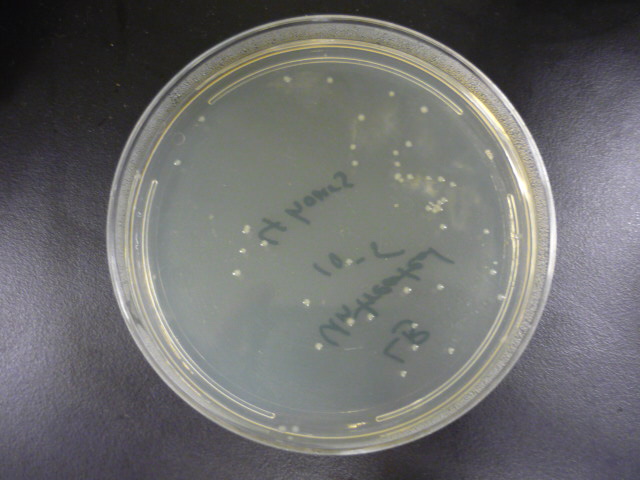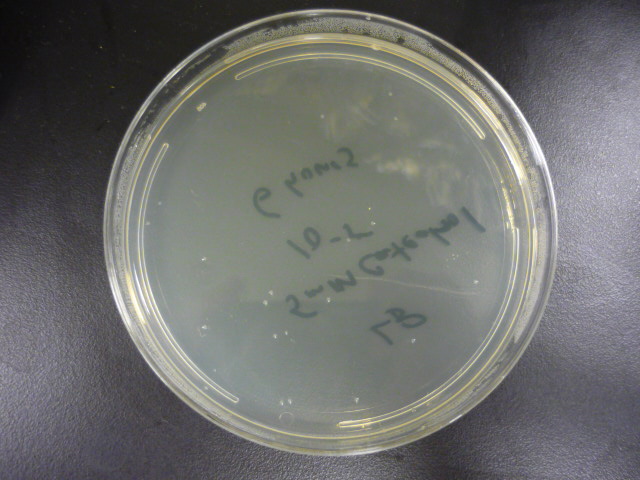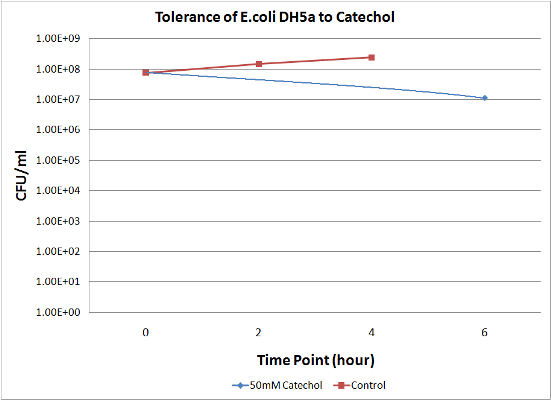Team:Toronto/Results
From 2010.igem.org
| Line 32: | Line 32: | ||
</p> | </p> | ||
'''Figure 1: A. Growth of ''E.coli'' DH5a on LB plates (1x10<sup>-5</sup> dilution) following exposure to minimal media and minimal media with 50mM catechol in solution. Plates shown are for the last time points plotted. B. Survival curves of ''E. coli'' DH5a exposed to catechol over a six hour time course.''' | '''Figure 1: A. Growth of ''E.coli'' DH5a on LB plates (1x10<sup>-5</sup> dilution) following exposure to minimal media and minimal media with 50mM catechol in solution. Plates shown are for the last time points plotted. B. Survival curves of ''E. coli'' DH5a exposed to catechol over a six hour time course.''' | ||
| + | |||
| + | '''Recombinantly expressed microcompartments assemble ''in vivo''''' | ||
| + | Kris your EM goes here with the appropriate description | ||
Revision as of 02:34, 26 October 2010
| Home | Project | Design | Protocols | Notebook | Results | Parts Submitted to the Registry | Modeling | Software Used | Human Practices | Safety | Team | Official Team Profile | FAQ | Acknowledgments |
|---|
Results
E. coli DH5a is sensitive to Catechol exposure
To measure the effect of our pathway manipulations on the viability of E.coli exposed to catechol we plan to perform a tolerance test. In preliminary experiments we established the baseline sensitivity of E.coli (DH5a) exposed to 50mM catechol in liquid media over a six hour time course. Aliquots of this mixture were plated on LB media at various dilutions and colonies were counted and compared with untreated controls (see "Protocols"). There was no measurable difference between control and treated cells when bacteria were exposed to catechol in a growth media (data not shown). However, in minimal media (MM2) growth of control cells was moderate while exposed cells exhibited a marked decrease in survival (Figure 1). Although the effects of Catechol exposure in E.coli and P. putida have previously been investigated [Park et al. 2001] completion of these baseline experiments will enable us to determine the effect of pathway manipulations on the proposed engineered E.coli strains containing various configurations of the pathway.
Figure 1: A. Growth of E.coli DH5a on LB plates (1x10-5 dilution) following exposure to minimal media and minimal media with 50mM catechol in solution. Plates shown are for the last time points plotted. B. Survival curves of E. coli DH5a exposed to catechol over a six hour time course.
Recombinantly expressed microcompartments assemble in vivo Kris your EM goes here with the appropriate description
 "
"



